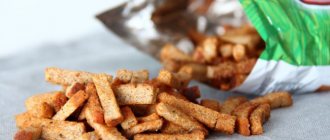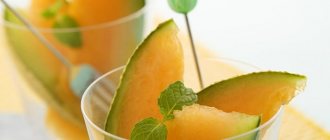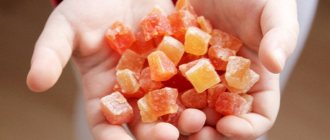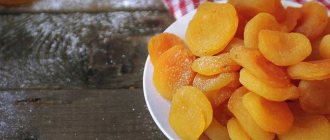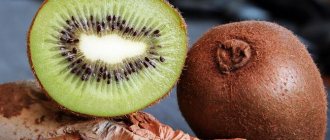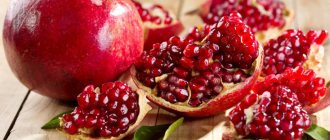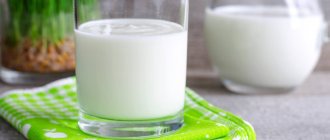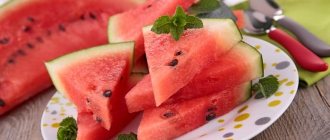If, when you approach the mirror, you turn on your inner aesthetic surgeon (“I wish I could remove this here, and tighten it up here!”), then there are two good news for you. First: these are just complexes. In fact, you are beautiful, even if you gained weight after giving birth. Second: if you really want it, you can fix it. A weight loss diet for nursing mothers is not at all what you think. When some women hear the word “diet,” they immediately see days of grueling hunger strikes with a ban on all their favorite foods. However, not everything is so scary. A balanced diet can bring not only benefits, but also pleasure.
Why isn't he losing weight?
In the maternity hospital, the mother usually leaves memories of birth difficulties and pain. Most often, some of the kilograms she gained during pregnancy remain there. But a significant part of them firmly adheres to the body of a young mother. You should understand and accept the fact that the kilograms will go away gradually, and not all at once. And not on your own: you must contribute to this. Read how to lose weight while breastfeeding.
But some young mothers still fail to lose weight during breastfeeding, even after many months. There may be several reasons:
- The habit of “eating for two.” Sometimes a woman continues to indulge in excesses that became a habit during pregnancy.
- Psychological factor. This includes sleepless nights, those extra pounds and lack of time to take care of yourself. A young mother may become depressed, withdraw into herself, and refuse enjoyable walks and communication with other people. By keeping her stress confined within four walls, a nursing mother causes even greater harm to her mental and physical health.
- Introduction of strict diets. Despite all the contraindications, some mothers begin to follow diets literally from the first days after giving birth. Strict diets with restrictions on certain food groups have a particularly negative effect on a woman’s body. Under such conditions, mommy can achieve the opposite effect - the extra pounds will not go away, but will only multiply, being deposited on the hips and waist.
- Incompetent or overly cautious advice from a pediatrician. Not all doctors whom a nursing mother consults have sufficient knowledge about the intricacies of nutrition for a woman who has recently given birth. In the old fashioned way, the doctor can prohibit the mother from consuming dairy products, fruits and other treats. A woman limited in her favorite foods can zealously “pounce” on other dishes. And it’s unlikely to be steamed broccoli or low-fat kefir.
Basic principles
To get rid of extra pounds, you need to do just two steps:
- eat less;
- move more.
But for many new mothers, both of these actions seem impossible. How can you eat less if you need to provide your child with milk? And not all mothers have time to visit the gym or swimming pool, because while caring for the baby and family, it is very rare to find a few hours for yourself.
But, as is well known, there is a way out of any situation. Those who cannot find opportunities to take care of themselves simply do not want to do it and come up with excuses for themselves.
“Weight-loss” nutrition during breastfeeding: basic principles
A diet for losing weight while breastfeeding involves following the following recommendations.
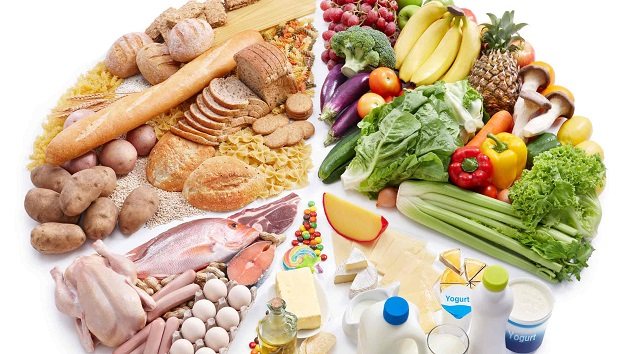
During breastfeeding, the same products are useful as always.
- Drink a glass of water 30-40 minutes before your first meal. This technique will help launch digestive and metabolic processes.
- Meals should be fractional - the number of meals should be 5-6 times a day. Portions should be small (no more than 250 g). You need to chew the food you eat slowly and thoroughly.
- The priority is fish dishes, but they can be introduced no earlier than the baby is 3-4 months old in order to eliminate the risk of allergies. If your child has a pronounced tendency to develop allergic rashes, wait until he is one year old. From meat it is better to choose turkey, beef, lean veal.
- Avoid consumption of fried foods. Boil, bake or steam all food.
- Limit your intake of fatty foods as much as possible.
- Sweets and flour products should be replaced with dried fruits and nuts.
- Eat as many vegetables and fruits as possible (it is better to give preference to seasonal plants and those that grow in the area where the mother lives). You can start trying exotic fruits when your baby is six months old.
- Introduce fermented milk products into your diet. It is better to consume them after heat treatment in the form of casseroles, lazy dumplings, and cheesecakes.
- If a nursing mother tries dishes while cooking or is used to eating leftover food after her children, the number of regular servings should be reduced.
- The best option would be to keep a diary of the dishes you eat. This will help you calculate the number of calories you consume. In addition, this way you can determine what foods your baby is allergic to and subsequently eliminate them from the diet.
- Eliminate highly allergenic foods (nuts, fish, honey, citrus fruits, etc.) until the baby is at least 4 months old. In some cases you will have to wait longer. If a child shows a tendency to allergies, then introduce any new foods into your diet with particular caution. Observe the child’s reaction: are there any changes in stool, is there a tummy ache, is there a rash. Many dishes will have to be removed completely.
- Fresh vegetables and fruits can be introduced after 2-3 months after the birth of the baby. In the first months, the menu should be thoughtful and careful.
Stage 1: Diet for a nursing mother
First of all, you need to adjust your menu, although most likely you already did this when you started breastfeeding.
The diet of a nursing mother who wants to lose weight should not contain foods such as:
- smoked and fried dishes - they need to be replaced with meat, fish and vegetables, baked in foil or simply boiled;
- sausage, frankfurters and other semi-finished products - it is much healthier to eat boiled or stewed meat;
- baked goods, sweets, chocolate, flour (including pasta, dumplings, dumplings) - such products not only do not bring anything useful to the child, but in general contribute to weight gain and deterioration of the stomach;
- sweet soda, concentrated juices with sweeteners - replace them with homemade compotes and fruit drinks, and sugar with honey and date paste.
Useful: Which cookies are suitable for nursing mothers?
But what is encouraged is the consumption of the following products:
- vegetables and fruits - they contain a lot of fiber, which “cleanses” the body and speeds up metabolism;
- dried fruits and nuts (if they do not cause allergies in the baby);
- whole grain bread and cereals - these products have an excellent effect on breast milk and also promote weight loss;
- natural freshly squeezed juices (carrot, apple, pear), fruit drinks (from cranberries, lingonberries, raspberries), compotes;
- high quality vegetable and animal fats - remember that animal fat in the diet should not exceed 10% of all oils consumed;
- healthy proteins - fish, meat, milk and dairy products.
Nutrition rules for a nursing mother
To lose weight while breastfeeding, a woman needs to follow several rules. This will not only allow her to regain her slim figure, but will also generally strengthen the body after childbirth, and also provide the baby with nutritious and healthy milk.
- Have dinner no later than 2-3 hours before bedtime.
- Eat often, but not much. The break between meals should be about three hours, and there is no need to eat too much for future use. This approach helps avoid overeating.
- Diversify your menu: eat fish, meat, vegetables, fruits.
- Drink more liquid - ideally it should be clean water, but herbal teas (for example, a collection with fennel and fenugreek improves lactation), juices, and compotes will also be useful.
- Eat only things that do not cause allergies in your child.
- Gradually reduce the amount of fat in your diet (the rate of reduction will depend on the introduction of complementary foods for the baby).
- If the feeling of hunger in the evening is very strong, then drink a glass of kefir or low-fat yogurt.
- Do not go on carbohydrate, protein or other diets, do not exclude healthy foods from the menu, do not drink fat-burning pills and teas - all this can negatively affect the baby’s health, and breast milk will disappear altogether!
Thus, we can say that a diet for losing weight while breastfeeding involves a healthy, balanced and nutritious diet.
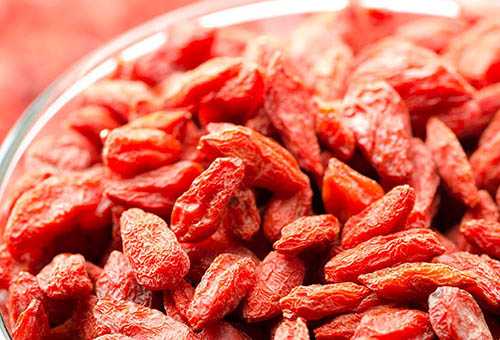
Goji berries for weight loss while breastfeeding
Probably everyone has heard about the benefits of goji berries. They are advertised by pop stars, and the Internet is replete with wonderful stories related to this product. Indeed, goji berries have a beneficial effect on the quality and quantity of breast milk, and also help strengthen the immunity of the baby and the mother.
Helpful: Preparing cauliflower puree for babies
In addition, goji berries:
- improve heart function (after childbirth this is especially important);
- rejuvenate the body;
- facilitate breastfeeding;
- help increase libido (your husband will appreciate this property);
- strengthens the kidneys and liver (in the first weeks after childbirth, this property of goji will come in handy);
- improve hormonal levels;
- treat insomnia and nervous disorders;
- normalize blood pressure.
There is a version that miracle berries promote weight loss. This is partly true, but if you are hoping for a miraculous effect a la 10 kilograms in a week, you will be disappointed. Eating goji will only give results with an integrated approach (proper nutrition, physical activity, walking).
You can consume goji berries in the form of tea. To do this, brew a spoonful of raw materials with a glass of boiling water and leave for about 15 minutes (you can do this in a thermos or a special mug). This tea is good for the body and helps ensure milk flow. But in their pure form, berries should be eaten carefully, as they are quite high in calories. A nursing mother can eat no more than five grams of dry berries daily.
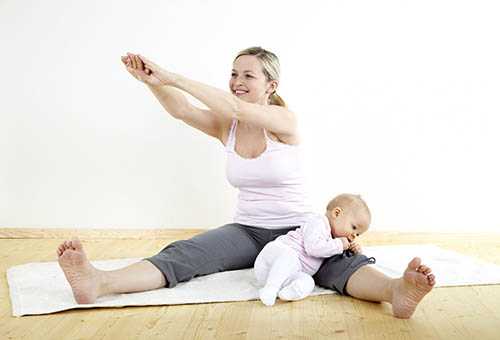
Counting calories and drinking water
Not every mother knows how many calories are spent during breastfeeding. To produce 1 liter of milk, the mother spends from 600 to 900 calories, beans - 14 g, fats - 35 g and carbohydrates - 70 g. These reserves need to be replenished. Based on these data, a young mother should consume at least 120 g of protein per day (70% of which should be of animal origin), 120 g of fat (20% should be vegetable) and about 500 g of carbohydrates. The daily calorie content of dishes should not exceed 3000-3200 kcal. But this is the maximum. If you want to lose weight, eat less.
The drinking regime is considered an important assistant for a mother during guard duty. It must be followed with any diet, including for a nursing mother. Depending on the age of the baby, the mother’s body produces about 1-1.5 liters of milk. For its “production” it is necessary to replenish fluid reserves in the body.
The basic rules of the drinking regime are as follows:
- Consume clean drinking water. The amount of fluid is individual for each woman and depends on the body’s metabolism, time of year and degree of sweating. The optimal amount is 1 to 2 liters of liquid per day (but not less than 800 ml).
- It is allowed to drink mineral water without gas. However, you should not drink it constantly. Otherwise, an accumulation of certain elements may occur in the body, which may affect the condition of the baby. Also, while breastfeeding, mothers can drink weak tea, compotes, and fruit drinks.
- Carbonated drinks (kvass, mineral water, lemonade, etc.) are prohibited. Of course, the consumption of alcoholic beverages is unacceptable. It is also better to give up coffee for a while - this drink can have an stimulating effect on the child. If you can’t resist drinking Arabica, it’s best to consume it before lunch, so as not to end up with a nervous and nervous baby by the evening.
And yet, how to lose weight while breastfeeding?
To lose a little weight (up to 10 kg) while breastfeeding, you will have to follow a few simple recommendations and enlist willpower. Here, as at any other time, only two golden rules apply one hundred percent:
First
To lose weight during breastfeeding, you need to expend more energy or consume less. The first is achieved through physical exercise, swimming, jogging or other fitness activities.
Second
Two easy “don’ts”: don’t eat 3-4 hours before bedtime and say “no” to baked goods + sweets after 1 pm. Hula hoop exercises will help you get your waistline back. Many special hoops have a massage surface and weights; focus your attention on them and twist for 10 minutes a day in different directions. Additionally, walking up stairs can help you lose weight. Climbing stairs with a stroller may be difficult at first, but it will be a very energy-consuming activity, so it will help get rid of excess fat deposits.
Here are some additional tips on how to lose weight during breastfeeding:
- eat in small portions, drink plenty of fluids, including when you want to chew;
- effectively combine your meals with feeding your child, who also eats little but often;
- walk outside more or do exercises with your baby, he will definitely like it and will bring great benefits to both of you;
- remove from the menu what has always been considered “unhealthy”: sweet soda, smoked and fried foods.
- Give yourself proper rest with at least 7 hours of sleep.
What diets are prohibited?
A diet for losing weight during lactation should be selected especially carefully. Not all options for common diets are suitable for a young mother and her baby. So, you need to give up these types of diets:
- Express diet (sharp and rapid weight loss will not benefit the mother’s body);
- Mono-diet: purely vegetable, dairy, etc. (while feeding a child, you cannot exclude a product or food groups from the menu and consume only one nutritional component);
- Protein diet (the menu of a nursing mother should include proteins, fats and carbohydrates);
The diet after childbirth should under no circumstances be too strict. The best option for a nursing woman would be to count calories, consume the right foods, stay hydrated and have periodic fasting days.
Fasting days during breastfeeding
Some experts (pediatricians, nutritionists, etc.) speak sharply negatively about fasting days during lactation. However, a properly organized fasting day will benefit the young mother, especially if her diet is far from correct. Doctors recommend fasting days even for pregnant women, subject to the necessary indications (excess weight, gestosis, edema).
Since nursing mothers are a special type of women losing weight, they should treat fasting days in a special way. As a rule, such days include the consumption of not one, but several products.
A diet for weight loss during breastfeeding does not exclude the following options for fasting days:
- Only fruit. A young mother is supposed to eat 1.5 kilograms of green or yellow apples per day.
- Only vegetables. 1.5 kilograms of fresh vegetables in suki (mother’s choice). Vegetables should be consumed in the form of salads, seasoned with unrefined vegetable oil or 10% sour cream.
- Only kefir. Involves consuming 1.5 liters of kefir, low-fat yoghurt or fermented baked milk per day.
- Rice only. Boil 150 g of dry rice (preferably brown) in water without adding salt. Ready rice can be eaten with the addition of any fruit.
- Only buckwheat. Boil 150 g of buckwheat or steam in a thermos overnight. You can eat buckwheat with the addition of any vegetables.
- Only cottage cheese. 500 g of low-fat cottage cheese combined with 1 liter of kefir.
- Only meat. Eat 500 g of lean poultry or beef all day long along with 1 kg of fresh vegetables.
- Only fish. Combine 500 g of lean fish (pollock, hake, perch, pike, hake, bream, etc.) with 1 kg of fresh or boiled vegetables.
When choosing a fasting day, mom should focus on her tastes. If she doesn’t like cottage cheese or buckwheat, you shouldn’t force yourself and spend days like this. It is best to choose products that are acceptable to you. Such days should not be spent more than once, maximum twice a week.
When losing weight, you should not rely only on fasting days. The rest of the time, nutrition should also be correct and balanced.
Nutrition rules
Let's figure out how to eat if you want to lose weight, but at the same time you are breastfeeding your baby. Moms should immediately learn that low-calorie diets, or any other diets with severe restrictions, are not suitable for them. A woman during lactation needs calories and all nutrients in sufficient quantities.

But of course, you shouldn’t eat everything without moderation. The myth that moms need to eat double portions is extremely harmful. The calorie content of the diet for a nursing mother should be increased by 500-800 kcal, but no more.
Menu for weight loss for every day
It is most convenient to divide the foods you consume into a week. A daily diet is perfect for these purposes. An approximate diet for a nursing mother to lose weight, a menu for every day.
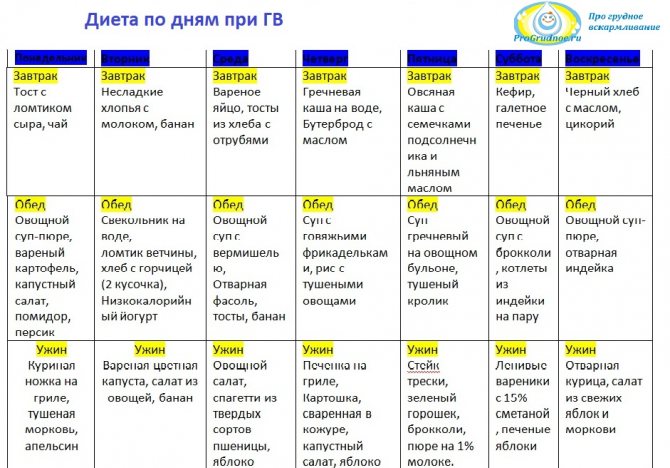
Various fruits, marshmallows and marshmallows, baked goods made from wholemeal flour, and cheese are suitable as snacks. From time to time you can treat yourself to rich pastries or dark chocolate, the main thing is not to overdo it in consuming such products.
A diet for a nursing mother to lose weight is one of the simple and effective ways to regain her former shape after the birth of the baby. The main thing to remember is that the menu should be balanced, the products should be healthy, and the drinking regime should be sufficient. If these conditions are met, mommy will very soon begin to notice improvements in her appearance, which will also be confirmed to her by the scales and the mirror.
